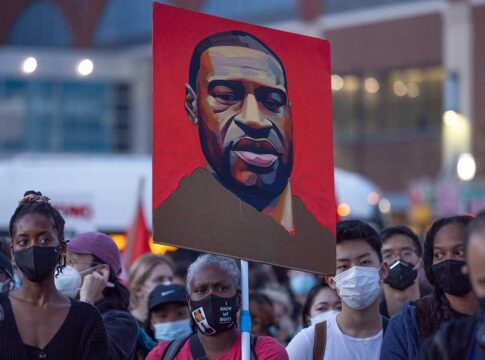The George Floyd case attracted national attention. One of the officers was released after serving federal and state sentences. J. Alexander Kueng’s release from FCI Elkton sparks debate over police reform and racial justice. What lies ahead for this man as he continues his life?
Former Officers’ Sentences and Releases
Former officer J. Alexander Kueng walked out of FCI Elkton, Ohio, after serving a sentence for aiding and abetting second-degree manslaughter in George Floyd’s death. This release comes after Floyd received a federal sentence for violating his civil rights, which was served concurrently with state charges. Thomas Lane was the first to be released after serving his sentence, and Tou Thao is expected to follow suit soon. Derek Chauvin, who was primarily convicted of Floyd’s murder, is still serving a lengthy prison sentence.
Kueng received a three-and-a-half-year sentence for aiding and abetting second-degree manslaughter, which has now been completed. His bail was set at $750,000 due to charges of second-degree murder without intent, which were complicated by his federal court conviction for violating Floyd’s civil rights. Prosecutor Matthew Frank emphasized that Kueng “was not simply a bystander in what happened that day,” indicating his active role in the case.
It was his third shift as a police officer—others lied and Alex Kueng would soon find himself in prison. A remarkable man who couldn’t have had a bigger smile when he saw his mom for the first time since being released. Please help him get his life back by donating to this fund:… pic.twitter.com/yhV3P8OOiz
— Liz Collin (@lizcollin) January 16, 2025
Impact on Police Reform and Racial Justice
George Floyd’s death was a watershed moment, sparking a global call for racial justice and systemic reform in law enforcement. In response to the incident, former Minneapolis Police Chief Medaria Arradondo commented on the officers’ complicity in not intervening, saying, “Mr. Floyd died in our hands, so I see that as complicit. You are complicit with your silence and inaction.” Such reflections have fueled ongoing reform efforts.
“Mr. Floyd died in our hands, and so I see that as being complicit. Silence and inaction—you’re complicit. If there were one solitary voice that would have intervened… that’s what I would have hoped for.” – Medaria Arradondo.
Following Floyd’s death, the public outcry and global demonstrations brought racial justice and equitable policing to the forefront. The case continues to raise concerns about the quality of police training, community engagement, and accountability in law enforcement. Efforts for comprehensive reform remain critical in addressing these complex challenges.
Supporting Alex Kueng https://t.co/DqDCUjzXpF
Please help Alex he did nothing wrong and watch the fall of Minneapolis to see how unjust this is. https://t.co/wqAiroSXtt
— hougie40 (@hougie40) January 17, 2025
Ongoing Debates and Public Sentiment
Kueng and his colleagues contributed diverse perspectives from various community sectors. While the sentences imposed on Kueng, Lane, and Thao were lighter than the recommended guidelines, reactions to these decisions were mixed. Floyd’s family’s attorneys stated, “Yet another piece of justice for the Floyd family.” This demonstrates Floyd’s diverse perspectives on justice.
This demonstrates Floyd’s diverse perspectives on justice. The debates center on themes of fairness and accountability in the nation’s judicial and policing systems. Reflecting on the tragedy and its aftermath, it is clear that the debate over George Floyd will continue to shape discussions and reforms in racial justice and law enforcement for many years to come.
Sources:


